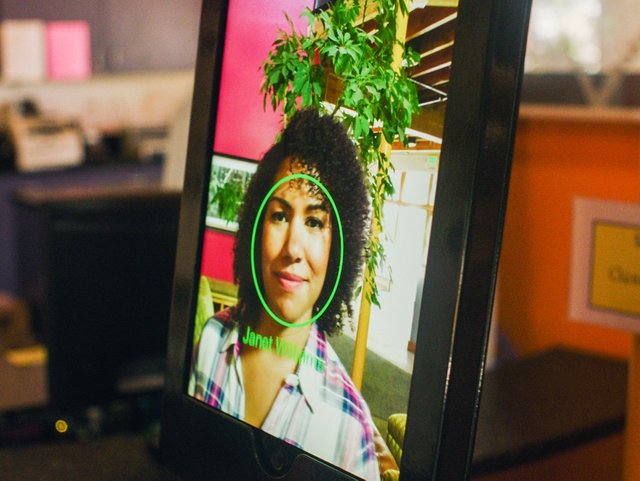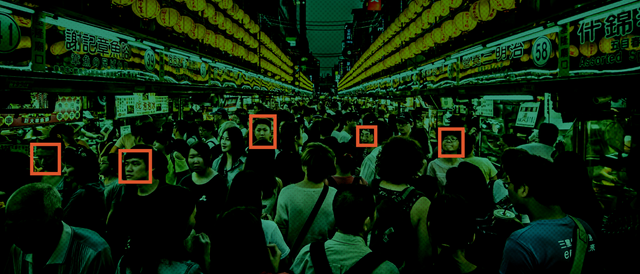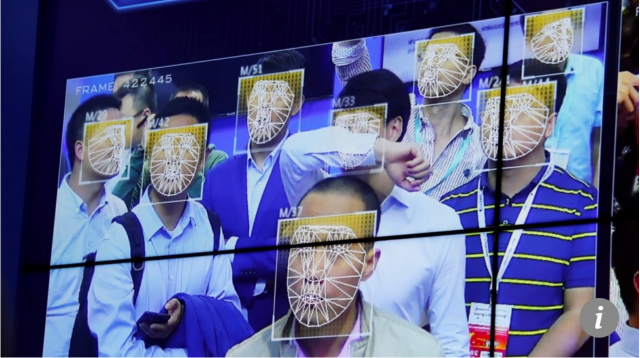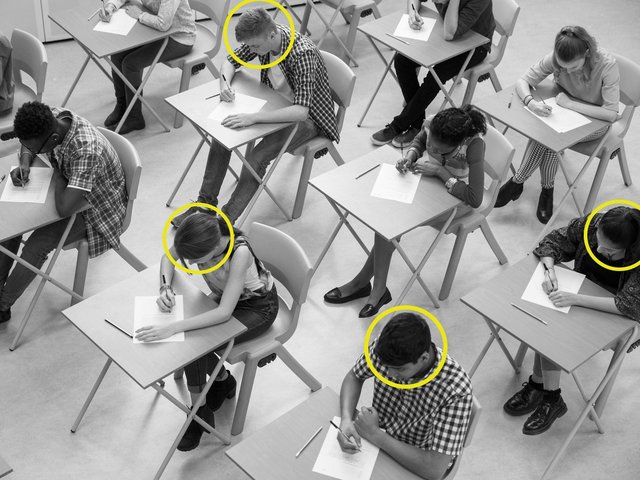The limited privacy our species currently enjoys is just months or years away from being reduced down to just a sliver of the liberties we enjoy today.
Facial recognition is coming to schools, law enforcement and pretty much every sector you can think of. Be ready.
How much do you enjoy your privacy? Do you feel your life is more or less private than it was a few years ago? How much more or less privacy do you feel you have now compared to a decade ago? These are questions I'm asking with a specific purpose in mind. Sometimes we give up our privacy in exchange for convenience. Other times we simply aren't aware that privacy is something to be cherished, it is something special that we have somehow as a species lost the plot about.
In this article I'm going to talk about a topic that I find deeply disturbing. It goes hand in hand with other topics I've discussed which include AI, robotics and blockchain. It is the glue that may tie them together. I'm talking about facial recognition technology and you may be surprised at how far it has come in such a short time.
I will discuss topics that involve facial recognition technology related to education, law enforcement and public landmarks and try to make a convincing argument as to why we need to not only be aware of this coming invasion of privacy but also proactive about telling government leaders we don't want to stand for it in many cases.
So let me start by telling you about a recent offer made to public schools to provide free facial recognition systems. My mom taught me there is no such thing as a free lunch and if anyone tells you otherwise, be wary.
In an article published by Wired entitled 'Schools Can Now Get Facial Recognition Tech for Free. Should They?' the author raises some disturbing points that I'd like to share with you now.
Like many parents in the United States, Rob Glaser has been thinking a lot lately about how to keep his kids from getting shot in school. Specifically, he’s been thinking of what he can do that doesn’t involve getting into a nasty and endless battle over what he calls “the g-word.”


Image Source: Wired

So the article begins by discussing the problem or leading readers towards understanding of why we would even want facial recognition in our schools to begin with. The g-word referred to in the paragraph above is guns. So the father is obviously worried about his son and the possibility of another kid bringing a gun to the school and using it to cause harm to others. This is a legitimate concern but is facial recognition technology really the answer?
Over the past two years, RealNetworks has developed a facial recognition tool that it hopes will help schools more accurately monitor who gets past their front doors. Today, the company launched a website where school administrators can download the tool, called SAFR, for free and integrate it with their own camera systems. So far, one school in Seattle, which Glaser’s kids attend, is testing the tool and the state of Wyoming is designing a pilot program that could launch later this year.
Now the bigger picture is starting to be made more clear. The company behind this technology isn't trying to simply give it away they are trying to get a test scheduled to provide proof that their technology would be useful in schools across America and in turn get a huge government contract to supply massive quantities of these systems in every state. Who is going to pay for this? Well, if you are American, you are.
“We feel like we’re hitting something there can be a social consensus around: that using facial recognition technology to make schools safer is a good thing,” Glaser says.
Making schools safer is a good thing, nobody is denying that but there are many ways to skin a cat! Or at least that is what I've been told as I've never skinned a cat myself, that seems wrong to me.
But while Glaser’s proposed fix may circumvent the decades-long fight over gun control in the US, it simultaneously positions him at the white-hot center of a newer, but still contentious, debate over how to balance privacy and security in a world that is starting to feel like a scene out of Minority Report.
Fortunately the article I've referenced appears to present a sort of balanced opinion bringing up the fact that privacy concerns come front and center. Personally I feel the fact that this is even being discussed and that trials are being scheduled in the first place are a huge red flag. In marketing you learn that any attention is good attention and this story is bad news for humanity. That is my gut feeling and that's why I'll continue to oppose this move until the end of days.


Image Source: Futurism

In another recent article published by Futurism entitled 'Microsoft President Calls For Government Rules For Facial Recognition Technology' the author discusses recent moves made by the president of Microsoft to influence the government into creating clearly defined rules for facial recognition technology and the way it is applied. I know on the outside looking in this seems positive.
Wow, I mean, clearly this guy has a heart, he's trying to protect us right? Well the cynic in my refuses to believe that there isn't more to this story. Microsoft wants to stack the deck in their favor by creating entry barriers which they can benefit from as they attempt to supply the world with their very own brand of facial recognition technology. I was a born at night but sorry, it wasn't last night.
According to the article in the current landscape, companies developing and using facial recognition technology haven’t had many rules to follow assuming there are any at all. However, as more eyes begin to zoom in and focus on this issue, ethical issues begin to pop up.
The European Union has enacted its own far-reaching privacy regulations that require companies to get explicit consent from subjects who have their faces scanned (companies face significant fines if they don’t follow the rules). But in the U.S., lawmakers have not passed an equivalent regulation.
I'll be honest, I simply don't see regulators caring or being incentivized to follow suit in the U.S. If you want to understand American politics, just follow the money. There's no money in protecting privacy rights. Some may disagree with my views and I'm completely willing to defend them in the comments below if you feel the need to do so.
Last week, in an unprecedented move, Microsoft president Bradford L. Smith called for facial recognition regulations in the U.S.
“We live in a nation of laws, and the government needs to play an important role in regulating facial recognition technology,” Smith writes in a blog post.
I can explain this issue easily. Microsoft wants to make money on this technology but cannot afford to invest more until it knows what limits will be placed. If it dumps a ton of R&D money and additional sums spent lobbying without knowing how all this will end up it would be taking on unprecedented risk. This risk can easily be avoided if they do what they are doing now, being a champion for regulation! Often there is more to be learnt in-between the lines then by simply reading the words on the page.


Image Source: SCMP

The last topic I will discuss in this article is the recent move to add facial recognition to an airport in China. Beijing’s new Zaha Hadid-designed airport is now showcasing its latest facial recognition technology and shouldn't the people there all be so proud of the accomplishment?
Facial recognition technology developed by Chinese start-ups will be used in Beijing’s new airport for security screening
Beijing’s new US$12 billion airport, which can handle up to 100 million passengers a year at full capacity is going to feature cutting-edge surveillance technology to ease bottlenecks in security and immigration screening.
On one hand I'm sure this will make travel a lot safer but on the other hand I can only imagine what all this data being collected will ultimately be used for. It is hard to not have mixed feelings about such a controversial topic. In my opinion the good does not outweigh the bad on this issue so I'll be ever more vigilent and outspoken as this agenda continues to develop.
So how do you feel about these new facial recognition systems?
Do you feel comfortable having your face scanned and being tracked everywhere you go? If the data was then sold and used by marketers to sell you products that they saw you showed interest in while wandering about would that be ok?
Are you willing to trade what's left of your privacy for a greater illusion of security?
Thanks for reading.
Authored by: @techblogger
In-text citations sources:
Schools Can Now Get Facial Recognition Tech for Free. Should They? - Wired
Microsoft President Calls For Government Rules For Facial Recognition Technology - Futurism
Beijing’s new Zaha Hadid-designed airport to showcase latest facial recognition technology - SCMP
Image Source:
Futurity
Wired
SCMP

Definitely a big big issue as the technology is becoming better and better everyday.
Other applications would involve finding the perpetrator of a crime through CCTV cameras in urban areas. Such scenario has all the ingredients of a new black mirror episode with a seemingly good idea turning terrible if in the wrong hands.
Maybe we should accept the fact that we live in a world where tragedies do happen and that we should not sacrifice our rights to privacy to prevent these.
To be honest from where I stand, here in Europe, I find it strange to see that a complete ban on guns (with the exception of security organisations) is the best way to minimize the rate of shooting incidents.
This is where it should start before bringing in human rights affecting solutions.
Downvoting a post can decrease pending rewards and make it less visible. Common reasons:
Submit
I was shocked to find that I needed my passport to exchange a small amount of local currency to USD. Is there anything that isn't tracked or monitored these days. Where does all this information go? The thought of it being used by bad actors has crossed my mind...
Downvoting a post can decrease pending rewards and make it less visible. Common reasons:
Submit
This not good.... and it is very bad that they try say it is good for as... it is good for them to know everything what you do... to know all about you, but do not give information about them...what they do. 😕😞 And then they start use this info when you start ask from them something big, so they start use this information to silence you.
Downvoting a post can decrease pending rewards and make it less visible. Common reasons:
Submit
There is no better way to adapt the new generation to constant surveillance than setting it up at the schools. Scary stuff indeed!
Downvoting a post can decrease pending rewards and make it less visible. Common reasons:
Submit